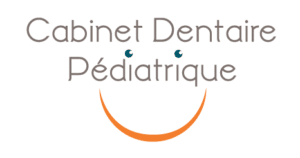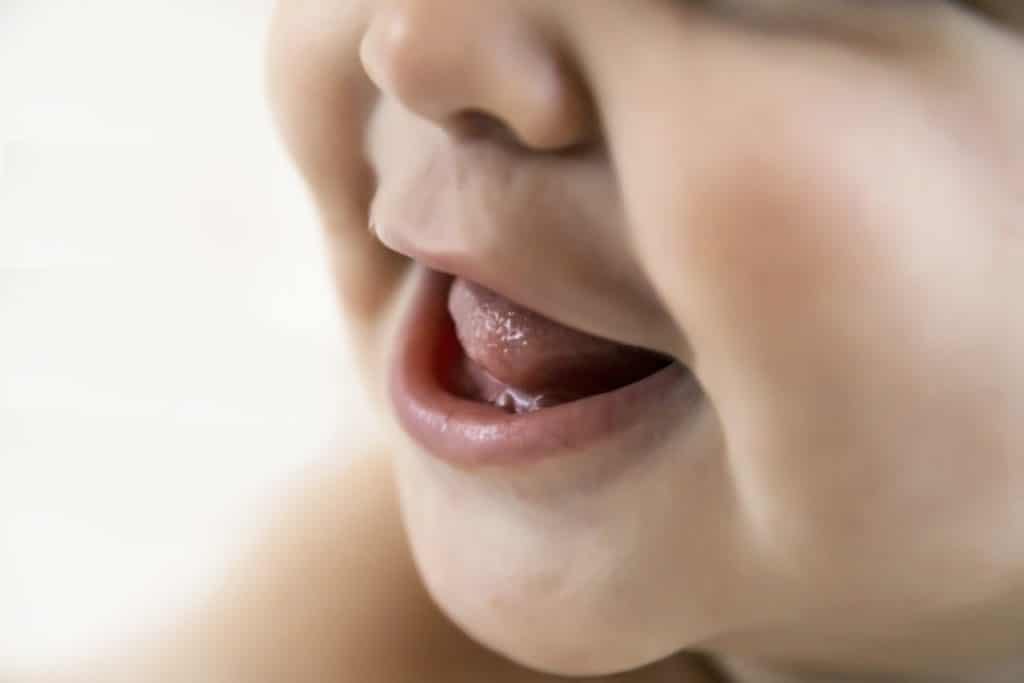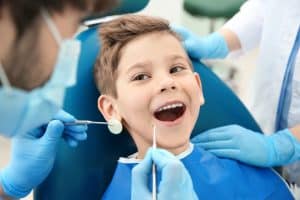If you've done some research on the subject, you've probably read and heard a lot of information about mouth brakes.
There are several brakes in the oral cavity. These are soft fibrous tissues that connect two parts of the mouth.
As the subject of the tongue brake is often mentioned, this article covers everything there is to know about the other main brake of the mouth: the upper lip brake.
Upper lip brake
The lip frenulum is a soft tissue membrane that connects the upper lip to the tip of the gum. When it is of normal size, it ensures that the upper lip can move freely.
However, many people, especially newborns, have an abnormally short upper lip frenulum.
This anomaly is quite common and benign, but in many measures it can affect the daily life of a patient.
The lip brake in babies
As previously mentioned, it is not uncommon for the lip frenulum in babies to be too short. How can you tell if this is the case with your child? A few symptoms can give you a clue.
A restrictive lip lock can prevent your baby from sucking and feeding properly. By restricting the mobility of the upper lip, the child cannot place his or her mouth on the breast properly.
Feeding requires a lot of effort which can cause :
- Physical fatigue
- Frequent falling asleep while breastfeeding
- Blisters on the lips.
These efforts of the infant during breastfeeding generally cause pain for the mother (burning sensations), or even obstruction of the milk ducts.
The lingual and labial brakes are among the first causes of breastfeeding cessation.
In the medium and long term, the presence of a tight lip lock can lead to difficulties in rolling up the lip or smiling, create tension in the face or cause oral disorders:
- Wide spacing between the upper incisors (also called "diastema" or "happy teeth")
- Caries on the upper incisors
- Delamination
- Orthodontic problems
- Etc.
Cut upper lip: frenectomy
A restrictive upper lip frenulum is not a fatality. If it does not interfere with the child's daily life or if it evolves with age, it is not necessary to operate.
However, if you notice that your baby or child suffers from the above symptoms, it is essential to consult a children's dentist, a pediatrician or an ENT specialist.
After examination, the surgeon determines if a frenectomy is necessary. Also called a freinectomy, this operation consists of cutting the lingual frenulum so that the patient can regain mobility of his lip.
Once the upper lip frenulum is cut, the baby quickly recovers its ability to feed properly. The procedure is painless and non-traumatic for the child.
For a quick and optimal healing, it will be necessary to do the exercises prescribed by the doctor who performed the operation.
Do you suspect your baby has a restrictive upper lip frenulum? Contact Dr. Adriana Agachi's office.
A pedodontist in Paris, she specializes in prevention and oral treatment for children. As a dental surgeon, she is also trained in anxiety management and non-invasive treatments for young patients.
The office has been designed to welcome children in a playful, caring and friendly environment that allows them to forget the medical aspect. For any request for information or an appointment, do not hesitate to call us.
Frequently asked questions about the lip brake
The lip brake is a fibrous tissue that connects the lips to the jaw bones. It allows the growth of the lips to match the growth of the bones of the mouth during fetal development.
The first sign is when you are breastfeeding: if your baby has to make a lot of effort when feeding, this may be a sign of a short upper lip.




